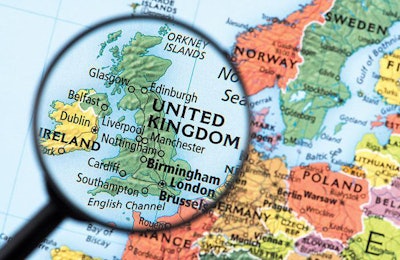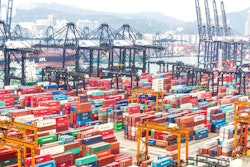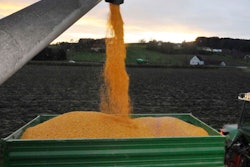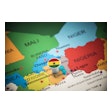
Lack of clarity and unfamiliarity with new procedures are creating major headaches for Great Britain’s livestock feed and pig industries after the last-minute tariff-free agreement between the European Union and the United Kingdom.
Just days before it looked likely that the United Kingdom (U.K.) might crash out of the European Union (EU) without an agreement – on December 24, 2020 — a deal was reached between the two parties.
Welcome for tariff-free trade agreement
To the relief of many sectors, it was agreed there would be no tariffs on trade between the U.K. and the EU. Among the organizations welcoming the agreement was the National Farmers’ Union (NFU) of England. Its president stressed the importance to both sides of a continued trading relationship.
“The successful conclusion of a deal between the U.K. and EU is very positive news for British agriculture,” said Minette Batters. “The EU is our largest trading partner. We have been clear throughout negotiations that maintaining tariff-free access to the EU market is absolutely crucial for our food and farming industry. That’s not only for farmers’ businesses and livelihoods, but for our ability to continue to provide a secure supply of quality, home-grown food for the nation.”
Impacts for Great Britain agri-supply trade
For the agri-supply industry in Great Britain, the impacts of the deal would be considerable, warned the sector association, the Agricultural Industries Confederation (AIC).
With the last-minute agreement, there were many loose ends. As the saying goes, “the devil is in the details.”
Among the complications is that the U.K.-EU border is now in the Irish Sea. This leaves Northern Ireland — which remains part of the U.K. — sharing a land border with the Republic of Ireland and, therefore, still attached by geography to the EU.
As well as the 26 member states of the EU, the deal also covers the European Economic Area (Iceland, Norway and Liechtenstein). It came into effect as the “transition period” ended on December 31.
Non-tariff issues for the feed sector
According to the AIC, it is uncertain whether certification is required in order to export some feed materials from Great Britain to Northern Ireland or the EU. Export health certificates may be required if the feed contain ingredients derived from animals. Examples of such products are milk products, gelatin, hydrolyzed proteins, eggs, dicalcium phosphate and collagen.
AIC has called for this issue to be resolved urgently. Currently, it says, livestock feed producers in Great Britain are unable to export to Northern Ireland or the EU.
However, there are other issues hindering trade from Great Britain, according to AIC.
To take advantage of tariff-free trade, Great Britain businesses need to be able to prove “preferential origin” of the ingredients — which requires unfamiliar documentation.
Also required is an unfamiliar procedure, namely the appointment of a representative in the EU.
Furthermore, to comply with EU requirements, labeling on all feed products destined for the EU or Northern Ireland needs to be completely reviewed.
Until the confusion over these issues is clarified, AIC says that transport partners and couriers are refusing to accept livestock feeds for transportation to Northern Ireland or the EU.
Communication issues
For grain trade, no phytosanitary certificates are required for entry to Great Britain, Northern Ireland or the EU. However, AIC reports that this information has not been understood by all personnel at points of entry.
Pig trade at a standstill
For the Great Britain pig sector, main issues emerging are the new checks and paperwork required to export pig meat to the EU.
According to the National Pig Association (NPA), the resulting delays at ports have brought the cull sow trade to a standstill.
“We have to accept that there always going to be difficulties with the change,” said NPA vice chairman, Rob Mutimer. “But it does seem now that the Europeans can get product in this country very easily, and the government is helping get product in over the water and getting trucks returned. However, we are finding we cannot get our product over to the factories in Germany that buy the meat that we are so desperate to move.”
“Up to 30% of consignments are being checked,” said NPA chief executive Dr. Zoe Davies. “This compares with other third countries to the EU, where they only have to check 1%.”
She called on the government for help to speed up the processes for pig meat exports, and end the delays.









